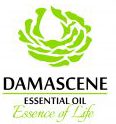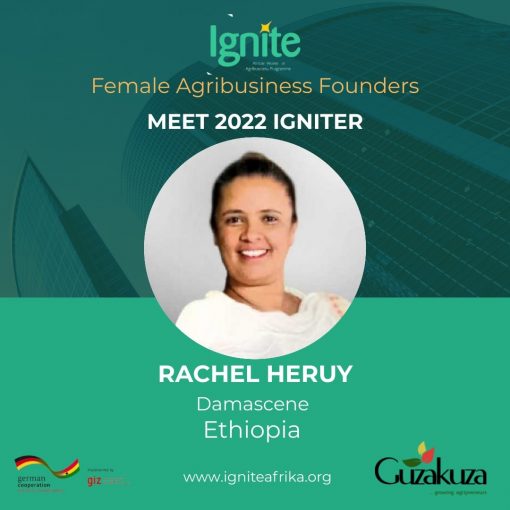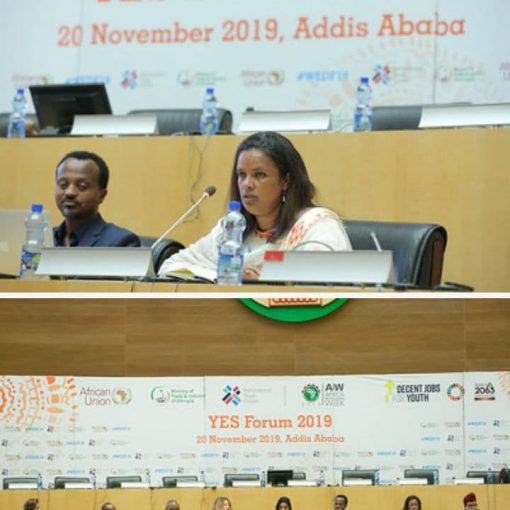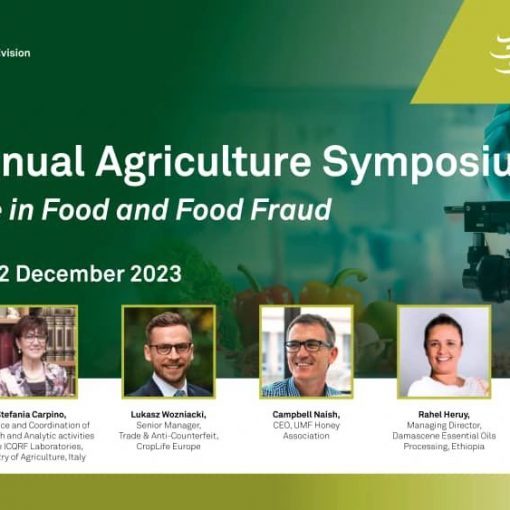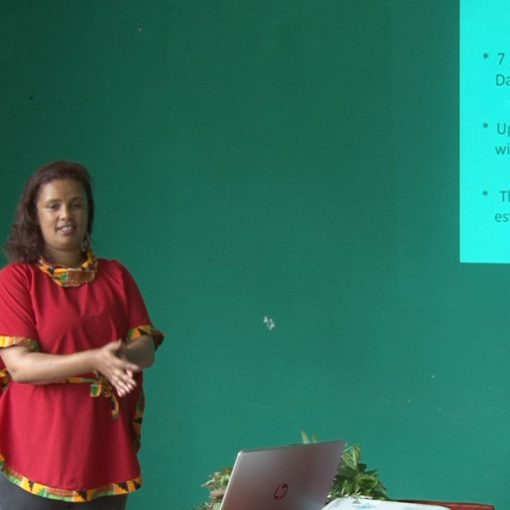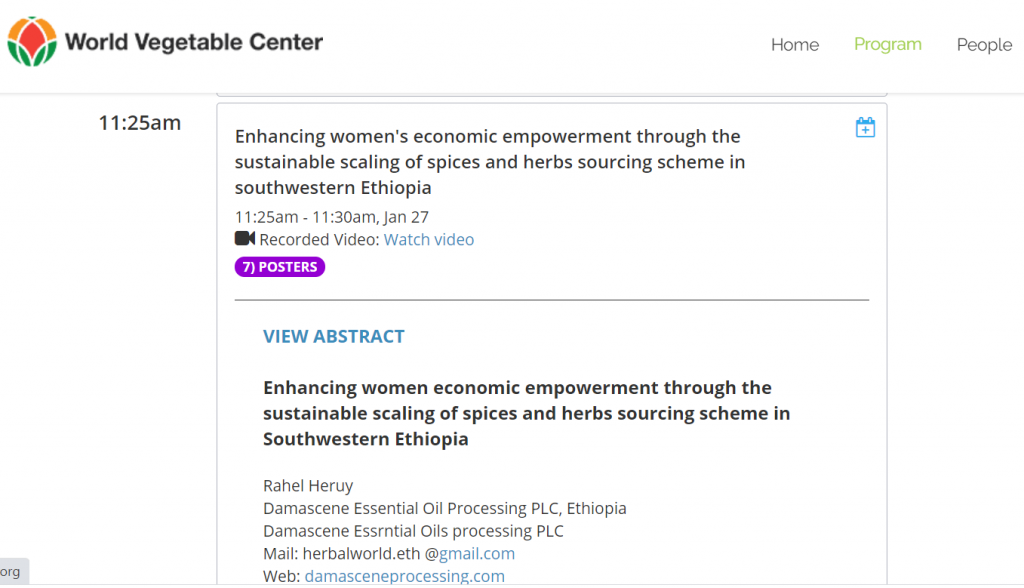
Abstract
Ethiopia is home to many spices and herbs including black cardamom, long red pepper, black cumin, turmeric, and ginger. These are cultivated widely in different agro-ecological zones of the country. Spices and herbs play a major role in the diet of most Ethiopians which makes the country one of the largest consumers of these products (more than 90% of its production is consumed locally). Spices are used as flavoring material, source of essential oil and serves as a cash crop for many smallholders. Despite their significance, farmers’ productivity is low due to their limited knowledge of modern methods of producing spices and herbs. Production is also fragmented which makes it difficult to aggregate sufficient quantities for onward supply to processors in a consistent manner. For most processors of spices and herbs, the risks involved in building a reliable supply chain is very high and requires both technical support and financial investment.
Damascene Essential Oil Processing PLC is a woman-led company working in the spices and herbs sector in Ethiopia. Damascene processes and markets edible spices, high-quality essential oils and cosmetic products for the local market. The company mainly sources raw materials (spices and herbs) from women farmers in Kaffa zone in the Southern region of Ethiopia. It is diversifying its product offering to include commonly consumed spices (turmeric, ginger basil, pepper, etc.) for household consumption. The company also seeks to expand its raw material base by reaching out to 5,000 women farmers within four years. To achieve this, Damascene must strengthen its sourcing scheme by establishing and capacitating women cooperatives, develop a loyalty scheme and establish linkages with other big buyers such as Unilever. This envisaged increased scale of operation comes with additional cost which the company must bare. There is also a risk of side-selling as supported women might sell to other buyers.
Through a Public Private Partnership (PPP), Damascene is being supported by the 2SCALE program (www.2scale.org) to overcome these challenges and accelerate progress towards meeting this goal. 2SCALE is co-funded by the private sector and the Dutch government and awarded to a consortium led by the International Fertilizer Development Center (IFDC) and comprising the Base-of-the-Pyramid Innovation Center (BoPInc) and the Netherlands Development Organization (SNV). 2SCALE works together with private companies (such as Damascene) and producer organizations (POs) to develop business models and partnership models that promote inclusiveness, develop competitive edge, and have potential for scaling. For the partnership with Damascene, the joint ambition is to develop a sustainable sourcing scheme that integrates these women as producers and makes nutritious spice and herb products available to Ethiopian consumers. 2SCALE is supporting the capacity building of women cooperatives in improved production practices and a loyalty scheme is being implemented to ensure regular and consistent supply of raw materials to the company.
So far, Damascene has supported 6 women cooperatives with technical assistance to improve their knowledge and skills in spices and herbs agronomy, food safety, and post-harvest management. These women mainly grow approximately 0.125 ha each of spices and herbs as backyard farms. The company is further mobilizing about 1700 women farmers who are being organized into 10 cooperatives. More than 100,000 seedlings of different types of herbs and spices; 27,850kg of turmeric seeds; and 7000kg of ginger seeds have been distributed to over 400 women on credit. An additional 440,000 seedlings are also being distributed. Damascene has sourced over 25000kg of spices and herbs from women cooperatives which have been processed supplied to consumers.
The integration of spices and herbs production as a backyard farming practice by women promotes agroforestry in the targeted communities, contributing to the protection of the environment and sustainable utilization of natural resources.
In this conference, Damascene is looking forward to sharing its experiences in:
# how PPP models can minimize the risk companies may face in their quest to integrate smallholder farmers as suppliers while remaining competitive in the market (spices and herbs).
# integrating women producers in spices and herbs production; an opportunity to women inclusion in a sustainable and commercial relationship with multidimensional impact in the lives and wellbeing of the women and their cooperatives.
#product development targeting low income consumers to improve access to nutritious spices and herbs products.
#constraints, lessons and opportunities in the spices and herbs industry.
Speaker Rahel HeruyDamascene Essential Oil Processing PLC, Ethiopia
https://whova.com/embedded/session/power_202005/1426639/?view=
